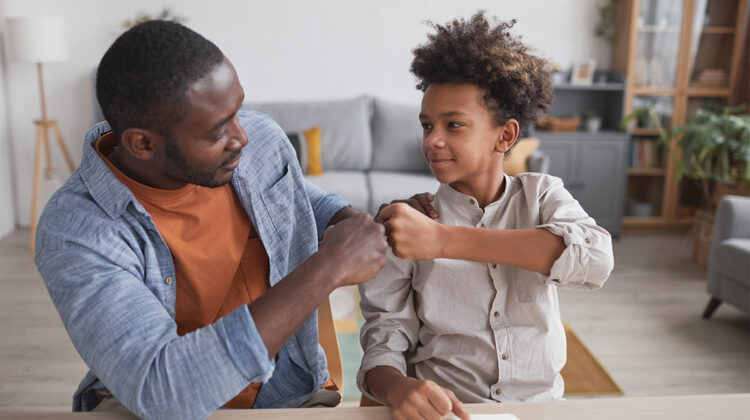Do you ever get the feeling that you tucked your child into bed and you wake up with a completely different one? Kids are constantly changing and growing up, meaning we are constantly re-examining our approach to parenting.
Communication is one of the biggest and most important tools we have to help guide our children along the way. But knowing how to talk to your child can feel overwhelming. You hear parents talk about the dreaded middle school and teenage years. This is when you think you live with an alien and you’re not quite sure how to talk to them. It doesn’t have to feel this way. I am going to give you some tried and true tips to talk to your kids and how to keep great lines of communication open.
We all want to be seen and heard. Some would say this is a basic need that all humans desire. We have to work at being able to talk to our kids so they will listen to us. It is also very important how we speak to our kids. The way you talk to your kid is the way he/she will learn to talk to others. Remember you are always their biggest role model and how they learn to navigate this world.
Let’s first take a look at some reasons why it’s so hard to talk to kids and be on their same level. Being a parent is a hard job and not one for the weak. The pressure and responsibility it takes to be an adult is no joke. This same pressure can impact the conversations and interactions we have with our kids. Sometimes we might not be in the mood to hear all the details because we still have many tasks to accomplish before we can rest. Our patience is thin and worn. We might come across as cold and pushy.
We don’t mean to do these things, but life can be difficult at times. This can come across to our kids that we are minimizing their problems, which makes them feel unseen and unheard. I think this is where kids often feel their parents cannot relate to what is going on in their lives. This is also where we look old and out of touch. Many movies and memes have been created from this same premise.
Empathy is going to play a key role helping us to better understand our kids. Empathy by definition is “the action of understanding, being aware of, being sensitive to, and vicariously experiencing the feelings, thoughts and experience of another.” This is so important in being able to communicate and understand our kids. We want to enhance our ability to understand and share the feelings of another. One way to have more empathy is to be an incredible listener.
Listening is a skill. The most interesting people are the most interested. You need to be able to actively listen in order to truly engage with your child. Keep in mind that these suggestions work for kids of all ages but you can increase your skill level if you start when they are younger. Below you will find ways to engage your kids and increase your listening skills.
Do you want me to just listen or are you looking for a solution? This is a great tool. Sometimes kids, like adults, just want to talk. It can be hard as a parent to turn off the parent part of our brains that wants to fix everything for our kids. But sometimes our kids just want to talk. So, I will ask my child if she wants me to just listen or if she needs help to solve a problem. This one is a game changer.
Ask open ended questions. This one sounds easy but is often overlooked. Here are some great conversation starters and examples of open ended questions.
What was your favorite part of your day?
What is the funniest thing you saw today and why was it funny to you?
If you could change one rule we have at home what would it be and why?
What do you like about your friends?
Do you think you are a morning or night person and why?
What was your least favorite part of today and how can you make tomorrow better?
These types of questions are endless. The great part about these questions is that they encourage critical thinking and you are going to get more of an answer than a yes or a no.
Listen to remember what is being said and be able to explain back for confirmation. Listen without judgment and acknowledge their feelings. When you are truly listening, you can repeat back to that person what they said and you can get confirmation that you are indeed understanding what they mean. Think about how many misunderstandings could be resolved with this one. This is where listening without judgment comes into play. This doesn’t mean you will always agree with them; however, listening and agreeing are two different concepts. This is where your empathy skills can shine by acknowledging their feelings. You don’t have to live it to understand it. When you can do this you are creating a safe place for your child to express themselves and share their lives with you.
Don’t ever feel like a failure if your child doesn’t want to talk to you. Nobody wants to engage 100% of the time. What you can do in the future is use these tips to set up conversations for success.

